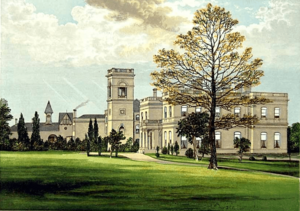Simonds d'Ewes facts for kids
Sir Simonds d'Ewes, 1st Baronet (born December 18, 1602 – died April 18, 1650) was an English historian and politician. He was trained to be a lawyer and became a member of the important Long Parliament. He kept detailed notes about what happened there. Simonds d'Ewes supported the Puritan side during the English Civil War. His book, Journal of all the Parliaments of Elizabeth, is very valuable for understanding that time. He also wrote about his own life in his Autobiography and Correspondence.
Contents
Early Life and Education
Simonds d'Ewes was born on December 18, 1602, in Dorset, England. He was the oldest son of Paul d'Ewes, a legal clerk, and Cecelia Simonds. His family originally came from a place called Gelderland. Simonds inherited a lot of money from his mother's father when he was young.
After his mother passed away in 1618, his father married Elizabeth Isham. Simonds got along well with his stepmother. However, his relationship with his father was often difficult. Simonds first had private teachers. Later, he went to the grammar school in Bury St Edmunds. While there, he wrote many poems in Greek and Latin.
Simonds then went to St John's College, Cambridge. He studied there and was influenced by the strong Puritan beliefs of the college.
Becoming a Lawyer and Historian
In 1611, he joined the Middle Temple, a place where lawyers are trained. By 1623, he officially became a lawyer. But Simonds was already wealthy, so he didn't work as a lawyer. Instead, he chose to follow his interest in history. He spent time studying old records in the Tower of London.
He met Sir Robert Cotton, another famous historian. Cotton introduced him to John Selden, a brilliant lawyer and scholar.
Family Life
In 1626, Simonds married Anne Clopton. She was only fourteen but brought him even more wealth. Their letters show they were very much in love. They had one son who sadly died as a baby in 1636. They also had a daughter named Cicely. King Charles I made Simonds a knight on December 6, 1626.
He lived in Islington for a while, focusing on his studies. In 1632, he moved to Bury St. Edmunds. This was because the King had asked wealthy people to leave London and live in their home areas. His father had bought Stowlangtoft Hall nearby. Simonds moved into the hall in 1633.
Political Career
In 1639, Simonds d'Ewes served as the High Sheriff of Suffolk. In 1640, he was chosen to represent Sudbury in the Long Parliament. He disagreed with the King's unfair rule. However, his views were quite moderate. The King made him a baronet in 1641. This might have been an attempt to gain his loyalty. But it was also a time when the King was selling such honors to raise money. Simonds' joy about this honor was quickly overshadowed by the death of his beloved first wife, Anne.
Role in the Civil War
When the First English Civil War began in 1642, Simonds d'Ewes joined the Parliamentarians. He stayed in Parliament until 1648. At that time, he was removed during an event called Pride's Purge. After 1648, Simonds d'Ewes stopped being involved in politics. He spent his time on his historical studies.
He passed away on April 18, 1650. He had married again to Elizabeth Willoughby. With Elizabeth, he had his second son, Willoughby, who became the next baronet.
Work as a Historian
Simonds d'Ewes is perhaps most famous for his work as a historian. He copied many important historical documents. Some of these original documents no longer exist today. His most well-known work is the Journals of all the Parliaments during the Reign of Queen Elizabeth.
Even though d'Ewes was very ambitious in his historical work, he didn't publish many major books during his lifetime. One book he did publish was The Primitive Practice for Preserving Truth (1645). The Journals were published after his death in 1682 by his nephew, Paul Bowes.
Legacy and Impact
Simonds d'Ewes is remembered for his notes on Parliament in the 1640s. But his biggest contribution was to the world of history. His most important scholarly legacy is his collection of copied historical documents. These copies are now very valuable because the original papers are lost.
He also kept a diary. This diary gives us a look into what happened in Parliament. It also shows us a bit about his own personality.
Even though he supported Parliament against the King, he was often surprised by how rough and aggressive some of his fellow Parliament members were. He wrote about the events that led to Parliament being suddenly closed in 1629. He said that "diverse fiery spirits in the House of Commons were very faulty and cannot be excused."
See also
 | Lonnie Johnson |
 | Granville Woods |
 | Lewis Howard Latimer |
 | James West |


